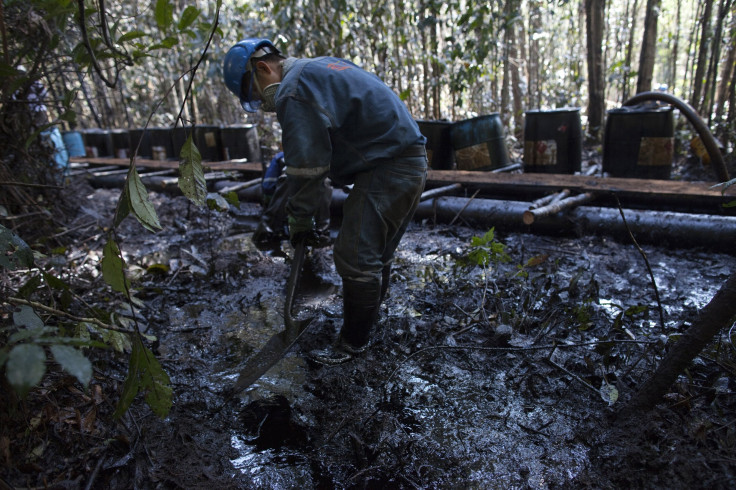
Peru's Amazon rainforest may be suffering from temperature change and deforestation, but it has also been abused for decades with crude oil leaks. The oil spills have resulted in the contamination of water, and in turn, are posing a threat to local indigineous Achuar communities.
The Guardian reports that 500 Achuar indigenous protesters have taken control of Argentine Pluspetrol, one of Peru's largest oil fields in the Amazon region of Loreto, to demand a clean-up. According to oilfield operator, Argentine Pluspetrol, the protest has taken a toll on the production as the facility has seen a 70 percent drop (11,000 barrels a day).
The protestors, who want to meet with the central government, have three main grievances with the company: public health threats, the environment, and the distribution of oil royalties.
Public Health: Carlos Sandi, the protest leader, told the Guardian that Pluspetrol is not cleaning up the pollution--as they promised to do in a 2006 agreement--which dates back to 40 years ago. Sandi claims the Achuar people are being “silently poisoned” by the lack of action by the oil company. “Almost 80% of our population are sick due to the presence of lead and cadmium in our food and water form the oil contamination,” said Sandi, who is also the president of FECONACO, the federation of native communities in the Corrientes River.
Environment: Last year, the government of Peru declared an environmental state of emergency in its rainforest after high levels of barium, lead, chrome, and petroleum-related compounds were found. Peru's environment ministry gave Pluspetrol, the biggest oil and natural gas producer in Peru, 90 days to clean the areas affected. In the last calendar year alone, Peru declared an environmental state of emergency on three separate instances.
Distribution of Royalties: One of the claims made by the Achuar people is that the government is not giving them their share of the royalties and is also not creating development programs in the regions most affected by oil exploitation (e.g. Tigre, Corrientes and Pastaza river basins). "We aren’t against oil exploitation or development we are calling for our rights to be respected in accordance with international laws," said Sandi.
© 2025 Latin Times. All rights reserved. Do not reproduce without permission.




